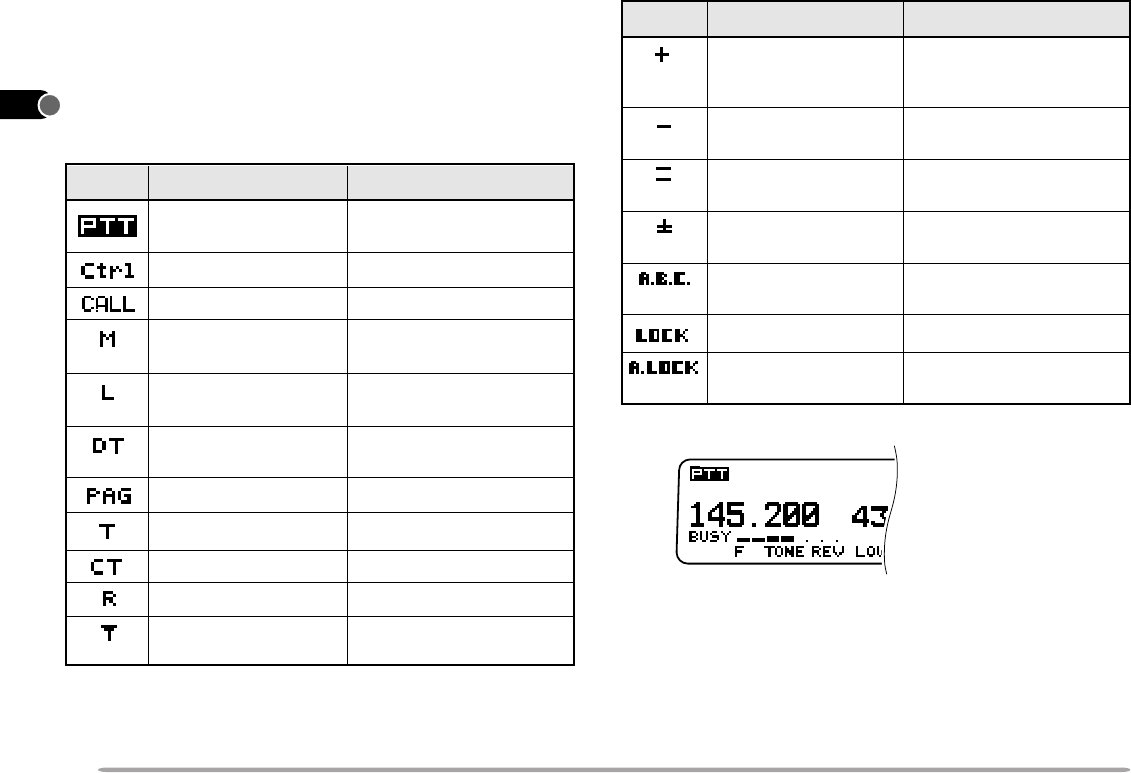
14
1
2
3
4
5
6
7
8
9
10
11
12
13
14
15
16
17
18
19
20
21
INDICATORS
On the display you will see various indicators that show
what you have selected. Sometimes you may not recall
what those indicators mean or how you can cancel the
current setting. In such a case, you will find this table very
useful.
What You Selected
Indicator
Always visible on either
band
[CONT SEL]
[CALL]
[LOW]
,
[LOW]
to select
the default (High)
[LOW]
to select the
default (High)
[F], [DTSS], [F],
[DTSS]
[F], [DTSS]
[TONE], [TONE]
[TONE]
[REV]
[REV]
What You Press to Cancel
TX (Transmit) band
Control band
Call channel
Medium transmit
power
Low transmit power
DTSS
Page
Tone function
CTCSS
Reverse
Automatic Simplex
Checker (ASC)
What You SelectedIndicator
[F]
,
[SHIFT]
,
[F]
,
[SHIFT]
( TM-V7E: one
more
[F]
,
[SHIFT]
)
[F]
,
[SHIFT]
(TM-V7E:
one more
[F]
,
[SHIFT]
)
[F]
,
[SHIFT]
[VFO]
[F]
, [MNU]
[F]
,
[MHz]
[MHz]+ POWER ON
then
[F]
, [MHz]
What You Press to Cancel
Plus offset direction
Minus offset direction
Minus offset direction
(–7.6 MHz)
Split memory
channel
Automatic Band
Change (A.B.C.)
Transceiver Lock
All Lock
(TM-V7E)
When you receive a signal:
• "BUSY" appears when the squelch {page 16} is open.
• The S-meter shows the strength of received signals.


















